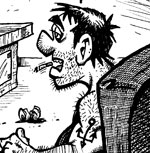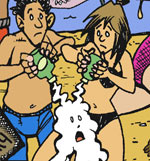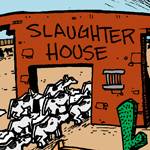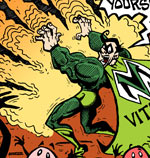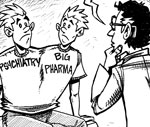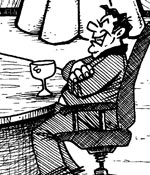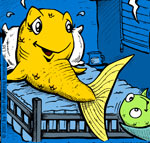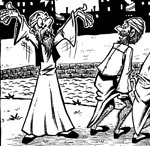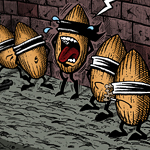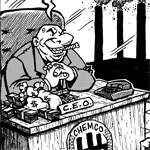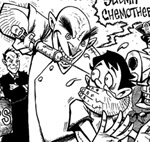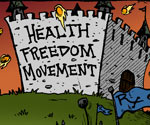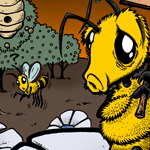Serotonin, the Building Block of Melatonin
| Share on Facebook | Share on Twitter | Share on Google+ |
For her entire life, Diane had been a night owl. Always someone who became the life of the party around midnight, Diane definitely was not a "morning person."
For many years, however, Diane was able to adjust her schedule so that she had a happy social life and a productive career, until she developed major depression.
In Diane's case like so many others, major depression did not seem to relate to any particular life event. She simply found herself feeling sadder and sadder, with less and less energy. Diane's depression continued for several years, getting worse every fall and better every spring, but without remission. And the longer Diane's depression lasted, the harder it was for her to get to sleep and get up every morning.
Why does too much serotonin make you drowsy? Trouble sleeping often stems from a lack of melatonin. In people who suffer moderate to major depression, the lack of melatonin in turn is due to a lack of serotonin, the chemical that the brain uses to regulate mood. An enzymatic process converts serotonin into melatonin, although the reaction only runs in one direction. Serotonin and melatonin are both critical to healthy sleep.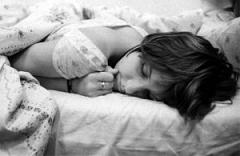
Serotonin reuptake inhibitors (SSRIs) increase available serotonin, but then the problem can be want to sleep all the time. It is possible that the brain simply needs down time to rewire itself after a major depressive episode, and sleep is just part of the healing process. But the answer to feeling sleepy when taking an SSRI is not to take stimulants!
Here is a protocol for overcoming sleep-related issues related to serotonin and melatonin.
- If you are experiencing both depression and insomnia, you probably will benefit by increasing serotonin. If you take prescription medication, do not take herbs or supplements. The combined effect can cause serotonin syndrome. If you do not take prescription medication, start taking tryptophan or 5-HTP, preferably on an empty stomach, and not at a meal when you eat a lot of protein.(More about serotonin and depression).
- St. John's wort relieves depression by treating inflammation. You can take both St. John's wort and 5-HTP. Do not take St. John's wort until you have been off all prescription medications for at least six weeks, to avoid serotonin syndrome.
- If you are in recovery from depression and you find you want to sleep all the time, do not take melatonin. It will also help to avoid foods that are especially high in serotonin, such as nuts, bananas, avocados, and tropical fruits. If you use caffeine to get going in the morning, it will help for you to get sunlight exposure at the same time you drink your morning coffee. Sunlight stops melatonin production in the brain.
Blue light, in particular, has important effects on sleep. Making sure you do not have even a tiny amount of blue light in your environment (even a night light when your eyelids are closed) will enable your brain to make the melatonin you need to sleep. Making sure you are out under blue skies will help wake you up, especially in the early morning.
-
Skin CareMen Skin Care
-
Free ResourcesFree eBooks
-
Every human being is the author of his own health or disease.Buddha
-
Featured Health Supplement"...I also suffer from mild-to-moderate depression, so several months ago as an experiment I ordered a few bottles of the Neuro-Natural Serenity formula, but never took it consistently. However, I started taking it faithfully last week at full dose and already my spirits are lifting and I have a greater clarity of mind."
Cathi, USA -
